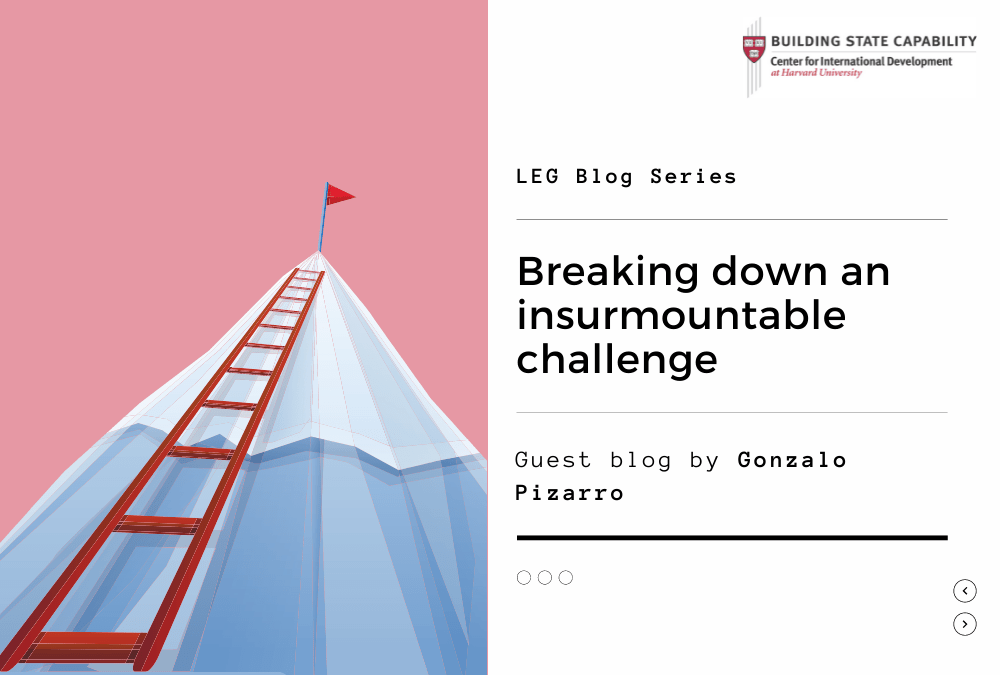Guest blog by Gonzalo Pizarro
I joined the Leading Economic Growth (LEG) executive education course along with two colleagues from the United Nations Development Programme (UNDP) with a growth challenge which seemed clear yet insurmountable: Providing the city of Kabul, in Afghanistan with an economic growth strategy after the government collapse, deterioration of security, massive exodus of people, and freezing of international aid, which represented 43% of GDP in 2019.
“Lack of political will across the board to negotiate a solution” – and – “nothing can be done until the security situation improves” were the two tenets that were a given entering the course.
During the 10 weeks of the LEG course, my approach to solving the problem radically changed. First, I was asked to define the problem. My first definition was objected to, as it contained a solution in it. I had to keep iterating the definition of the problem for several weeks, up until the growth problem was exactly that, a growth problem.
As we went through the PDIA approach (break down your problems into root causes, identify entry points, search for possible solutions, take action, learn and iterate), the insurmountable challenge started to become a collection of smaller challenges, some of which could be addressed. It was also clear, not on an abstract way, that complex problems cannot be solved by one person, and do not have a predefined solution.
The course provided us with a basic toolkit to address this issue. The toolkit was fundamental to help us deconstruct the growth challenge, and then to provide a structure and an ever evolving roadmap to find partial solutions building our way to solving our growth challenge. Yet, for me, the main learning the course provided was the change in mindset to approach complex problems.
Another important takeaway was the operationalization of political will. Understanding the authority and ability needed to effect the necessary changes to tackle the growth challenge and how to obtain it from the relevant parties needed to support this process transformed political will from an exogenous variable into a lever we can effect change upon.
Finally, the discussion on inequality and the “sense of us” allowed me to understand clearly and articulate an argument on how growth and inequality are two sides of the same coin, and long term sustainable growth cannot be achieved without higher levels of equality. Also, it provided a political economy dimension to explain some of the barriers and decisions taken by governments that might seem counterintuitive from a purely economic point of view.
Special mention has to go to the peer learning and group structure of the course. The diversity of the group allowed to bring in a wealth of new insights into the discussions of each one of our growth challenges. I personally benefited tremendously from Ileana, Nada, Akalu and Kola’s ideas, knowledge and experience. As a group, I feel we “combined our letters”, and jumped to a different tree.

This diverse group experience is one that we are replicating, using UNDP as the convener, to move forward in developing a growth strategy for Kabul, and eventually for Afghanistan. At the end of the 10 weeks, the growth challenge in Afghanistan remains a huge one. Now we have a roadmap to work on it.
This is a blog series written by the alumni of the Leading Economic Growth Executive Education Program at the Harvard Kennedy School. 61 Participants successfully completed this 10-week online course in December 2021. These are their learning journey stories.
